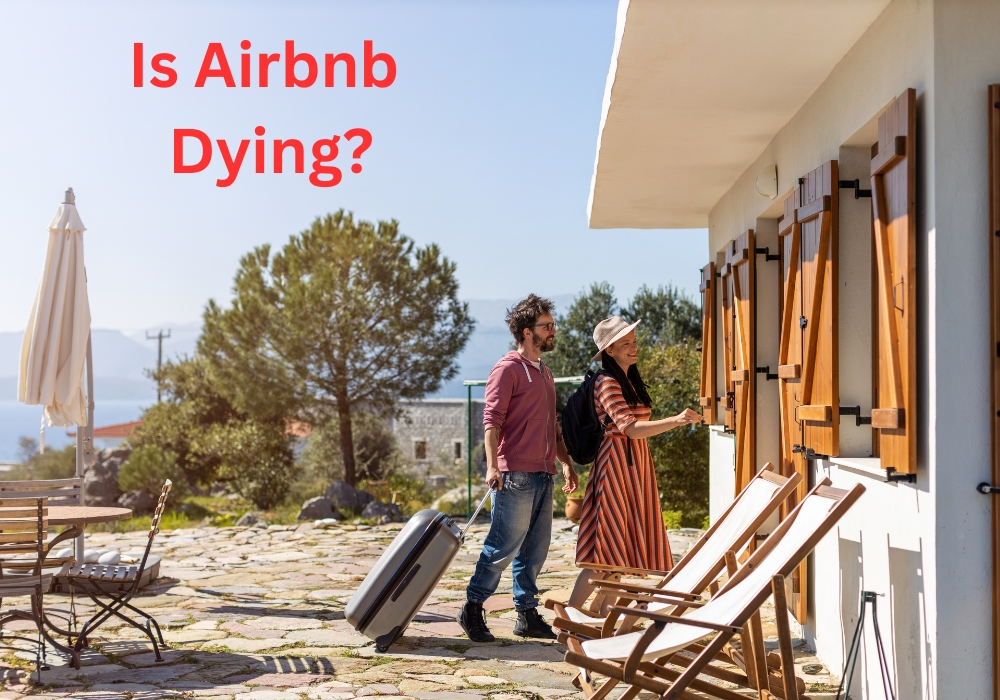Airbnb’s meteoric rise since its inception in 2008 has been nothing short of astounding.
This revolutionary platform transformed the way we travel, providing millions with a unique, personalized travel experience and enabling homeowners to monetize their unused spaces.
However, the unforeseen collapse of Airbnb left many astounded. As the dust settles, we delve into the pivotal reasons that led to this unexpected downturn.
1. Over-Saturation of the Market: Over the years, the number of listings on Airbnb grew exponentially. This oversaturation led to increased competition among hosts, driving down prices and thinning profits.
While variety is excellent for guests, the sheer volume made it challenging for hosts to maintain occupancy rates, leading to diminished returns and dissatisfaction.
2. Regulatory Challenges: Airbnb faced significant regulatory challenges in many key cities worldwide. Governments imposed heavy restrictions or outright bans, concerned about the platform’s effect on local housing markets and community cohesion.
The loss of some of these pivotal markets crippled Airbnb’s reach and revenue.
3. Trust and Safety Concerns: Several high-profile incidents involving Airbnb hosts or guests made international headlines, raising concerns about the platform’s safety measures.
Although Airbnb tried to implement stricter safety protocols, the recurring issues tarnished its reputation and deterred potential users.
4. The Rise of Competitors: By 2023, numerous platforms emerged, offering similar peer-to-peer rental services. Some specialized in luxury accommodations, while others focused on business travel or unique experiences. These platforms fragmented the market and reduced Airbnb’s dominant hold.
5. Economic Fluctuations: The world economy saw a few significant shifts leading up to 2023.
Economic downturns in certain regions meant that fewer people were traveling, and those who did were looking for even more cost-effective solutions than Airbnb.
6. Shift in Travel Preferences: Post-pandemic, the way people traveled changed. Many preferred longer stays or sought more remote, off-the-beaten-path destinations.
While Airbnb initially capitalized on these trends, they failed to adapt quickly to the evolving preferences of a rapidly changing world.
7. SEO Missteps: In the digital age, visibility is crucial. Airbnb began to lose its stronghold on search engine results pages.
Newer platforms, with aggressive SEO strategies and specialized niches, started to rank higher, drawing organic traffic away from Airbnb.
The inability to maintain its SEO dominance was a significant factor in its decreased user acquisition.
8. The Community Disconnect: One of Airbnb’s initial selling points was the sense of community and connection. Over time, as the platform grew, many users felt that Airbnb lost its personal touch.
Instead of unique homes and experiences, many listings began to feel like impersonal, commercial ventures, eroding the platform’s core value proposition.
9. Technological Challenges: Though Airbnb was a tech pioneer in its early days, by 2023, they faced issues with site outages, security breaches, and a lack of innovative features.
These technological missteps left room for competitors to offer more reliable and advanced platforms.
10. Over-Expansion: Airbnb’s attempts to diversify its offerings, from “Airbnb Experiences” to boutique hotel listings, diluted its brand and confused its core audience.
Spreading itself too thin, it failed to excel in any particular niche.
In Conclusion:
Airbnb’s collapse in 2023 is a cautionary tale for businesses operating in the ever-evolving digital landscape. No matter how revolutionary or dominant a platform may seem, it is vulnerable to market shifts, competition, and internal challenges.
For Airbnb, a combination of external pressures and internal missteps led to its surprising decline. This episode underscores the importance of adaptability, foresight, and a keen understanding of one’s market and audience in the world of digital business.









Usually I do not read article on blogs however I would like to say that this writeup very compelled me to take a look at and do it Your writing style has been amazed me Thank you very nice article